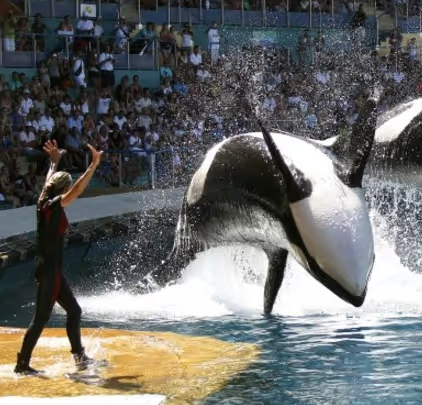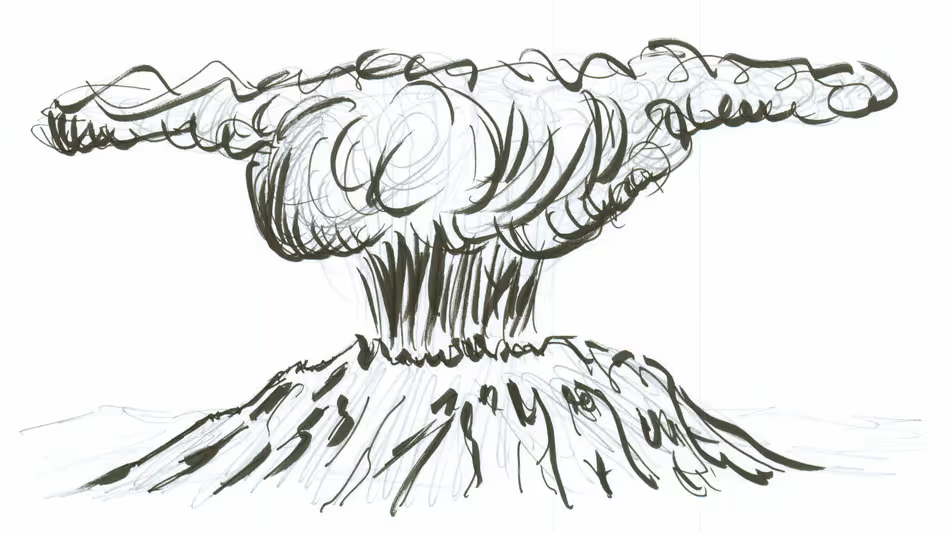Category: Environment
Events:

April 21, 2025
Decolonizing Ecology: Rethinking Nature in a Broken World A conversation between Madhusudan Katti and Amitangshu Acharya
Free Live Podcast Event and Q&A with the Speakers

November 10, 2023
Seminar: Leading Change in Ourselves for Our World
Free webinar presented by climate scientist, Heidi Steltzer.

September 22, 2023
Seminar: Regenerating Sonora
Free webinar presented by Christopher Casillas.
Articles:

June 25, 2025
Environmental Cues and Health Outcomes: An Evolutionary Perspective on Neighbourhood Effects
What if your neighborhood could shape your stress levels, your trust in others, and even your immune system?

June 26, 2024
The Indigenous Notions of Kincentricity and Reciprocity: The Keys To Sustainability and Climate Change
Indigenous cultures around the world have long held ecological wisdom rooted in their spiritual and cultural beliefs that scientists are only now coming to understand.

April 2, 2024
Hollywood Climate Movies and The Potential of Tragedy
Filmic tragedies about climate change would be a better genre than melodrama to help promote perspective and purpose for the ethical and political difficulties ahead.

January 30, 2024
What Does Decolonization Mean for Conservation?
Humans are naturally prosocial. But we need to address our underlying power structures and rethink our policy actions.

January 23, 2024
If Colonialism in Africa is Dead, Would That Make Forest Conservation its Ghost?
Policies and abusive practices against local people in Africa mirror the colonial experiences of their forebears.

March 21, 2022
Dealing with Disproportionality in Climate Change Policymaking
How can we leverage what we know to attenuate and adapt to climate change catastrophes?

February 11, 2022
The Solution To Climate Change Is To Talk About Climate Change
Maintaining optimism in the face of what is an overwhelming climate crisis is absolutely necessary, even vital.

January 27, 2022
Changing Social Norms Could Create a Green Future
What can we do, from an evolutionary psychological perspective, to use our hunger for status for a better climate?

January 13, 2022
Addressing Gaps Between Knowledge, Action, Justice: The Climate Change Challenge
“You will die of old age. I will die from climate change.” - Greta Thunberg


December 9, 2021
Evolutionary Mismatch, Partisan Politics, and Climate Change: A Tragedy in Three Acts
Climate change is the quintessential Tragedy of the Commons problem of our time. But there are cultural strategies that may offer solutions.

December 2, 2021
The Anthropocene: A Shock in the Evolutionary History of the Earth System
How can we turn around this trajectory towards a catastrophic future?


April 9, 2020
The Fossil Fuel Industry: The Greatest Threat to Human Wellbeing
Fossil fuel companies have an incentive to prevent policies that would keep them from selling their assets. We should not be surprised, therefore, that these companies have taken steps to prevent such an outcome.

March 7, 2020
Evolving a Major Transition in the Internet Age
The theory of major transitions provides an all-encompassing framework to explore both the opportunities and challenges facing humanity in the Internet Age.

September 12, 2018
Constructing Our Niches: The Application of Evolutionary Theory to the Architecture, Engineering, and Construction (AEC) Industry
The architecture, engineering, and construction (AEC) industry has the ability to mindfully orchestrate the direction our built environments push us with regards to climate change, occupant wellbeing, and the evolution of life on this planet. But it requires we construct our “niches” in a manner that consistently provides environments aligned with our individual and group level needs, including long term needs associated with social stability and environmental sustainability.

November 1, 2017
Constructing Our Niches: Evolution’s Relevance to Modern Human Society
Human behaviors, the physical objects we create and use, as well as their associated intellectual traditions are part of our collective toolkit for adapting to the larger social/cultural and physical environments we live within.

June 19, 2017
Deconstructing Niche Construction: A Conversation between Gordon Burghardt and Kevin Laland
The concept of niche construction stresses a dialectical relationship between organisms and their environments, rather than one being passively shaped by the other. It has deep roots in evolutionary thought but only now is resulting in a systematic research program. Join Gordon Burghardt and Kevin Laland as they take a deep dive into the subject.


May 15, 2014
Snakes, Sunrises, And Shakespeare
How our deep evolutionary past still shapes our modern tastes, desires, and aversions.

May 2, 2014
The Future Looks Good For Citizen Science
Public participation in science, or citizen science, is finding a foothold in all branches of science.

February 7, 2014
Books are Maps of Nature, Screens are Maps of Nothing
Our Stone Age brains never had or needed a way to process written symbolic language.

August 22, 2013
How City Living Is Reshaping The Brains And Behavior Of Urban Animals
Humans are creating totally new environments compared to what animals have seen in evolutionary history.

August 19, 2013
Stable Vices Revisited: SeaWorld And Early Human World
Our apparent dominance over evolutionary forces as an absolute victory seems as out of touch as a dancing killer whale in a swimming pool. At the very least, we should stop pretending that living the way we do now is ‘normal’ for humans, just as we are starting to realize that there’s nothing normal about an orca living among strangers in a pool and forced to do ridiculous tricks in front of thousands of screaming kids to get food.

June 7, 2013
Defeat Hackers With Biomimicry
Given that digital information is more central than ever, it's worrisome that the history of data security is littered with failure.

April 25, 2013
Biology And The Border
To understand why the border will never be secure, and why it doesn’t matter anyway, we have to turn to other voices.

April 10, 2013
Crisis Mapping, Bio Blitzes, and Google Flu Trends
Recent projects that exemplify an emerging revolution in how we interact with and understand a dynamic and complex planet.

March 6, 2013
To Become More Adaptable, Take a Lesson from Biology
Even the best of us are horrible at predicting the future.

February 15, 2013
Genetic Variation Helped Humans Evolve, Adapt To Climate Changes
Two studies have uncovered two intriguing human adaptive traits.

January 24, 2013
How and Why Do We Pick Our Friends?
Studies of dolphins, primates and humans show the reason we choose the companions we do is more complex, and perhaps less honorable, than we might think.

January 9, 2013
Why Do Animals Like To Play?
Recreation may look like it serves no obvious purpose, but when dogs and other animals are having fun they are learning some valuable lessons.

December 27, 2012
Erratic Environment May Be Key to Human Evolution
Key mental developments within the human lineage may have been linked with a highly variable environment.

November 13, 2012
Symbiosis and Sandy
The symbiotic relationship between Obama and Christie and in nature.

November 9, 2012
Don’t Trust Your Stone Age Brain: It’s Unsustainable
We haven’t evolved to be successful in the modern world.

October 30, 2012
Far From Random, Evolution Follows a Predictable Genetic Pattern
"Is evolution predictable? To a surprising extent the answer is yes."

October 22, 2012
How Human Beings Almost Vanished From Earth In 70,000 B.C.
"We damn near went extinct."

September 27, 2012
Ecomimicry: Principle One - Evolution
Without integrating evolution, we can’t design a society interconnected with ecology and we won’t restore the natural world.

September 12, 2012
Researchers Seek New Drugs Through Evolution and Local Plant Lore
Drug-producing plants easier to spot with a knowledge of evolutionary history.

September 1, 2012
The Evolution of Fairness
Can examining how inequality began in a hunter-gatherer society teach us how to fairly share the costs and consequences of how we use diminishing natural resources?

August 27, 2012
Multiple Personality Disorder in Conservationists
Are you an idealist or a pragmatist when it comes to conversation?

August 8, 2012
There’s Something Special About Islands
A new study provides some of the first empirical evidence that island biodiversity really is different from that of the mainland.

August 8, 2012
Interdisciplinary Science in the Anthropocene
my advice to those idealistic students after my own tortured career in interdisciplinary environmental science.


July 31, 2012
Studying Evolution With an Eye on the Future
Creating the future today.

July 30, 2012
Conservation: Time for Triage or a Big Old Can of Red Paint?
Real conservation seems more like a scary and unpredictable black market.

July 27, 2012
Correlation, Causation, and the Bravery of Young Observational Scientists
Fracking, low birth weights and the scientific process.

July 26, 2012
‘Darwinian Agriculture’ Explains How Evolution Can Improve Agriculture
What we need is a plant able to produce more with a given amount of water.

July 24, 2012
Climate Change and Inter-Group Cooperation
Given the tension between our evolved tribalism and the global collective action problem of managing our planet, how can we hope to avoid the climate tipping point?

July 20, 2012
Gorilla Youngsters Seen Dismantling Poachers’ Traps—A First
Heartwarming story of gorillas dismantling poachers traps.

July 20, 2012
Learning From The Tubeworm About Turning A Crisis Into An Opportunity
adaptability, symbiosis, and the water crisis (or is it the “coming water opportunity?”).

July 18, 2012
Nature Isolation and Stable Vices
Is our increasing physical isolation from nature, and from one another, causing us to exhibit “stable vices”?

July 12, 2012
Down on the Cacao Farm: Sloths Thrive at Chocolate Source
Once a tract of tropical forest has been cleared, sloths have relatively little capacity to seek out new habitats.

July 12, 2012
It’s Rats vs. Penguins on Contested Chilean Island
"The cause of the decline in the penguin population is man," said bird veterinarian Paula Arce. "And of its eggs ... That could be the rats."

July 10, 2012
BioWatch, False Alarms, and Adaptable Alarms
Some of the best solutions for human problems can be found in nature.This article from the <a href="http://www.latimes.com/news/nationworld/nation/la-na-biowatch-20120708,0,3444893,print.story">July 7, 2012 Los Angeles Times</a> documents some of the vexing false alarms that have plagued the U.S. Department of Homeland Security’s multi-billion dollar BioWatch system.

June 22, 2012
Dirtying Up Our Diets
Reintroducing coevolutionary diets to improve health outcomes.

April 4, 2012
How Plants and Animals Can Prepare Us for the Next Big Disaster
We ought to look to nature—and its 3.5 billion years of adaptations for survival—for how to better protect ourselves from terrorist attacks, natural disasters and infectious disease.
our newsletter
